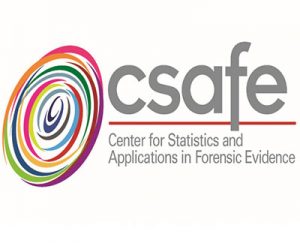The President’s Council of Advisors on Science and Technology (PCAST) recently released a report calling attention to serious problems in the area of forensic science currently used in courtrooms. Jessica Cino, a law professor at Georgia State University in the area of forensic science, explained the two types of validity that a forensic science should have before being used in courtrooms: (1) foundational validity-reproducible studies on its accuracy and (2) as applied validity- a method used by examiners that is reproducible and accurate. She notes that only single-source DNA analysis is the only forensic science currently that has both types of validity. Fingerprint analysis and DNA mixture evidence (in which a sample had DNA from more than one individual) currently is foundationally valid while not valid as applied.
Cino also elaborated that firearms identification has shown potential to be foundationally valid, but there needs to be more research in this area of forensic science. Footwear analysis does not have research showing that it has even a potential for being foundationally valid, while bitemark analysis is unlikely to ever be shown as foundationally valid.
Cino also noted the lack of appellate avenues for convicted defendants even if the forensic science used to convict them is later found to be unreliable. California and Texas are currently the only states that provide appeals to convicted defendants who had junk science used against them, even if traditional manners of appeal have been exhausted. Other states should follow suit.
The National Association of District Attorneys (NDAA) have blasted the PCAST report that questions forensic science practices, claiming there is scientific data to support other fields of forensic science and that no subject-matter experts were consulted. “The NADA concluded that judges should continue to be the ones who decide what makes evidence reliable and thus admissible. It asserted that the stringent requirements to become expert witnesses, along with the ability to cross-examine them in court, are enough to guarantee reliable and admissible evidence”
Cino argues that cross-examination is not a good substitute for scientific rigor, and furthermore, people who are not trained in science should not be the gatekeepers who decide whether a forensic science should be allowed in the courtroom.


Leave a Reply